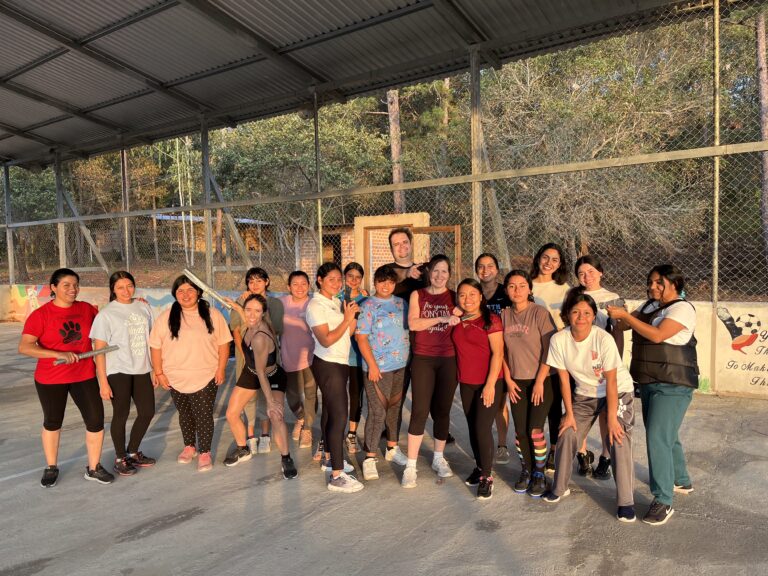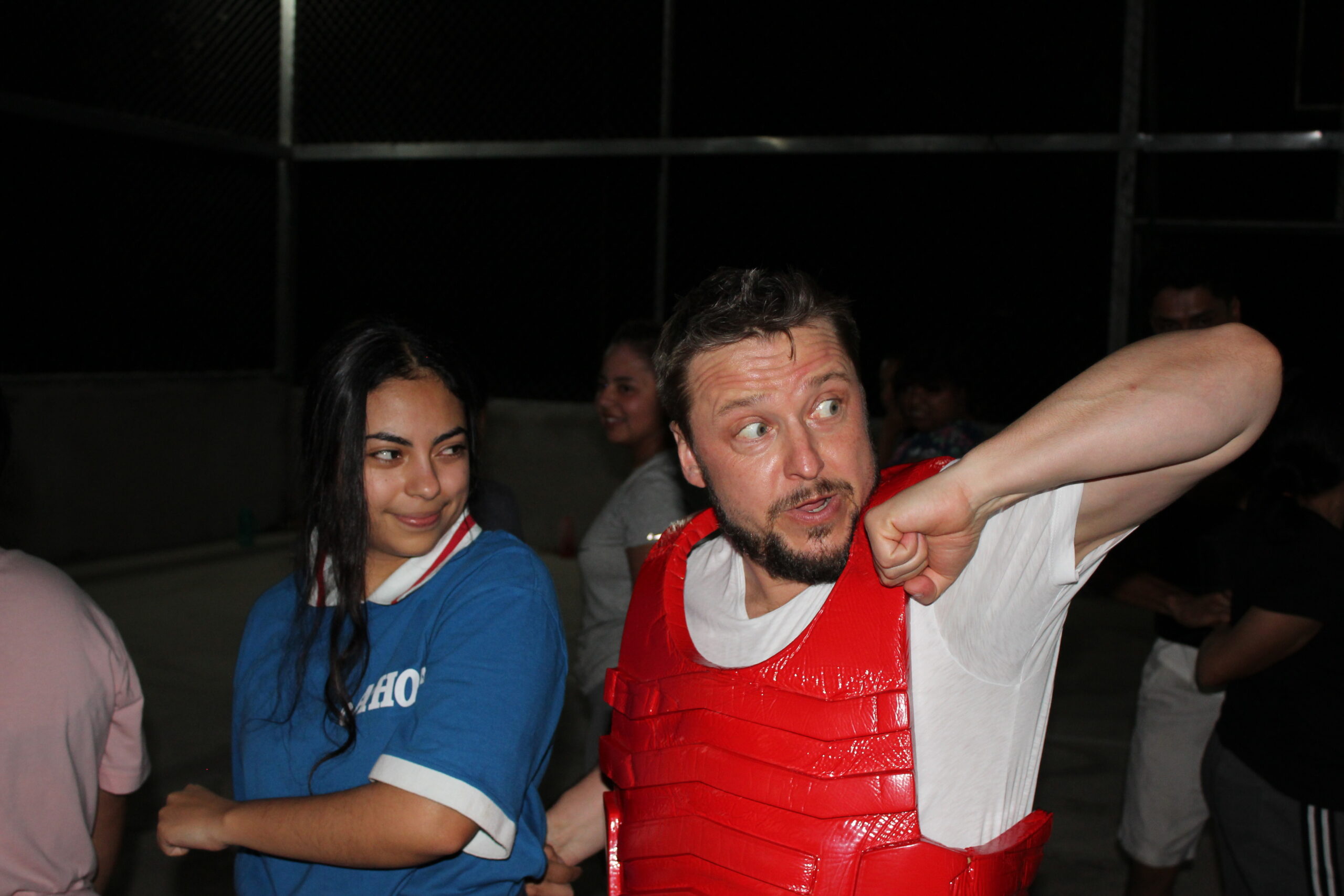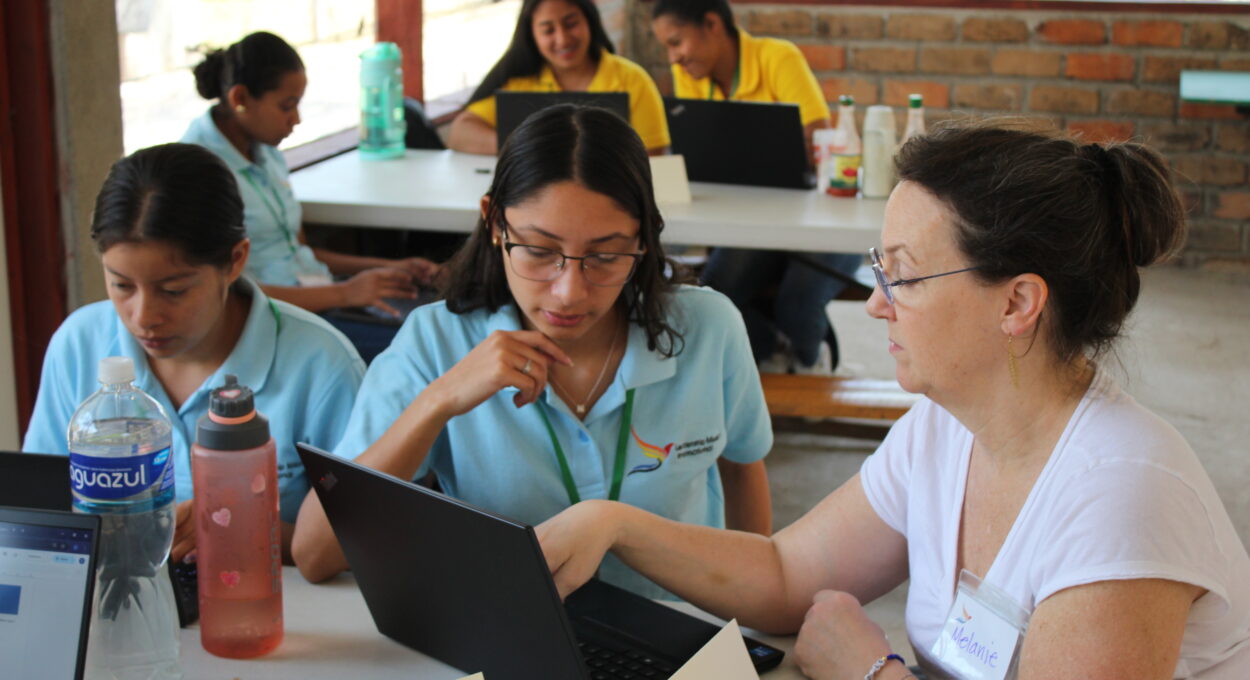
Melanie Armstrong helps students with their resumes.
This past week at LMI was dedicated to dynamic approaches to empowerment. For the 4th year in a row, Melanie Thomas Armstrong, the chair of our board, visited our campus with a team of passionate volunteers eager to assist and inspire our students.
Melanie continued her focus on storytelling and personal growth, showing students how sharing their own journeys can build confidence and shape their futures. Meanwhile, Melanie’s sister, Jennifer Thomas, an 8 th degree Black Belt in Kenpo Karate, once again brought her Basic Yet Brutal: Self-Defense course to our school. Sophia Campana, an elite gymnast, content creator, author, and motivational speaker joined the powerhouse crew. Now a purple belt at Jennifer’s Los Angeles based studio, she assisted the self-defense instructors, and she also conducted a seminar based on her signature Powerful Mind workshop, which focuses on the mental resilience to stand up for oneself and channel one’s passion to achieve one’s dreams.
Aided by volunteers Julie Lucero and Maxim Naumenko, Melanie underscored how storytelling helps women realize they’re not alone in their struggles. Reflecting on an earlier session, she observed, “When the women saw America Ferrera’s character facing similar challenges in Real Women Have Curves, they felt validated and less isolated.”
This theme carried into her resume-building workshop, where students discovered that volunteering at church or helping in a family store are legitimate experiences worth highlighting. “By the time we finish, they realize how much they’ve already accomplished,” she explained.

Melanie led a group project where students redesigned the campus mini-mart, creating a name, logo, and profit-boosting strategies. The winning group’s ideas were implemented and will shape the new mini-mart.
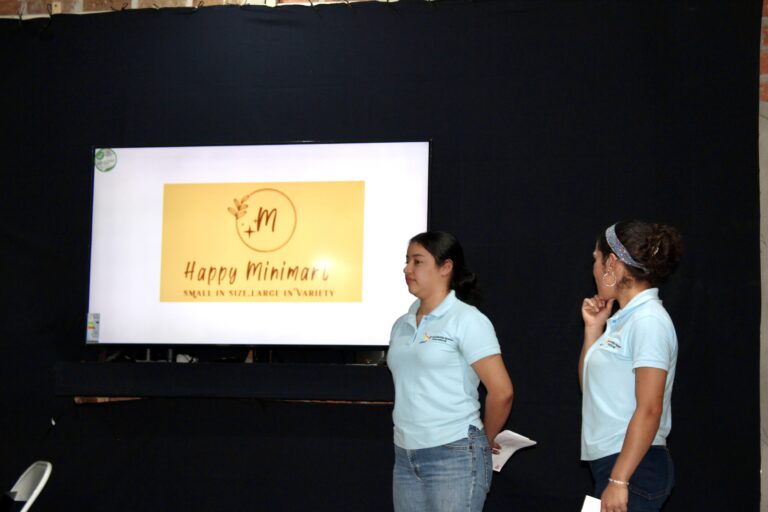
“I liked making the resumes because I learned how to do it the right way. Now I feel more confident about what to include and how to say it.” — Yesica, Second Year Student at LMI.
Meanwhile, the students’ self-defense training provided a parallel avenue for personal growth—along with much-needed safety. Honduras has the highest femicide rate in Latin America, with 211 femicides reported between January and September 2022 alone. According to UN Women, approximately 90% of these crimes remain unpunished, highlighting deep systemic challenges. In such a context, the self- defense learned at LMI is not just a practical skill; it’s an essential step toward safety, confidence, and reclaiming personal power. Assisted for the 3rd year in a row by longtime student and 6th degree Black Belt Jared Nitzschner, Jennifer taught simple moves that are not only effective but provide a powerful boost to the students’ self-confidence. As with everything in life, the proper mindset is key to success, and students learning what they can do in the event of an attack gives them the will to fight back with conviction; hence, the course mantra: “I can, I will.” Jennifer and Sophia even created a “self-defense dance”—performed at the end of the week as a group—to help students remember the key moves!
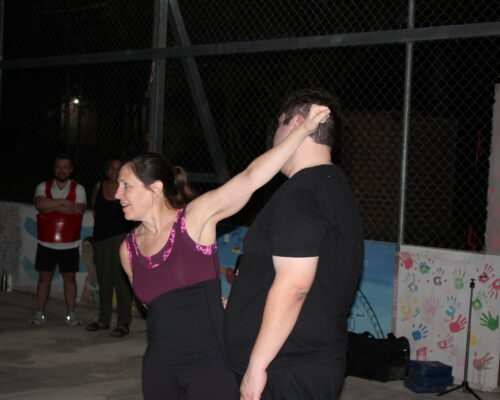
Self-Defense instructor Jennifer Thomas demonstrates a technique with her assistant, Jared Nitzschner.
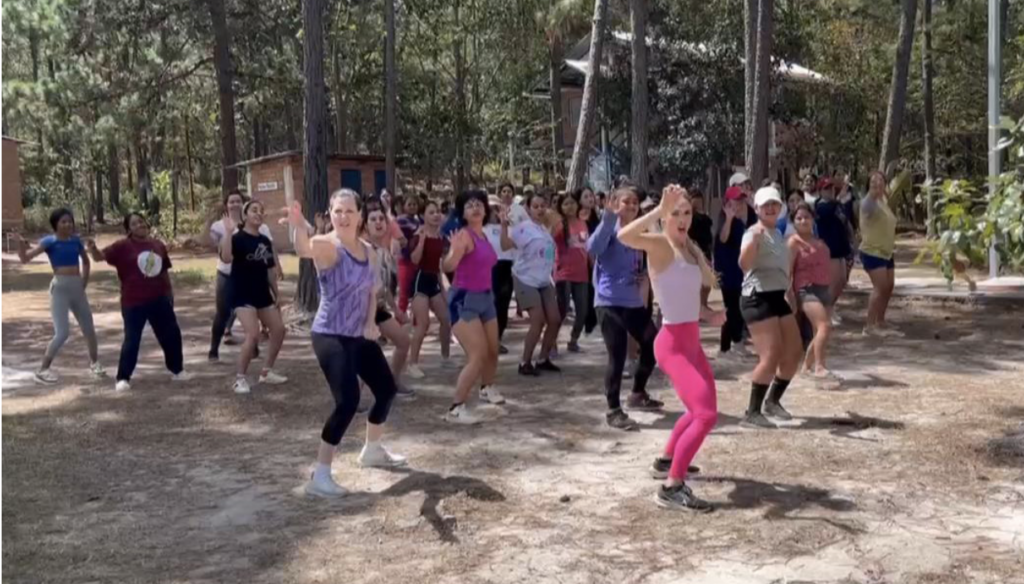
Jennifer Thomas and Sophia Campana taught students a fun and informative self-defense dance.
Sophia’s journey offered an equally powerful testament to personal transformation. She opened up about enduring psychological and physical abuse while training with the Italian national team, and finding the courage to confront it. “I wanted to leave my trainer, but was afraid, because I thought she was my only key to my success,” she said. “But when I stood up for myself, everything changed.” Her message resonates deeply at LMI, especially in a self-defense context where women learn not only to protect their bodies but also to set healthy boundaries in everyday life.
Throughout her workshop, Sophia repeatedly drove home the idea that failure and fear are part of the process. Whether you’re learning a new backflip or taking your first steps into a leadership role, stumbling is inevitable—and okay. “Every time I fail,” she noted, “I learn what doesn’t work, and I move closer to what does.” Melanie sees similar benefits in encouraging students to share their own ups and downs, pointing out how reflection helps them appreciate their resilience and growth.
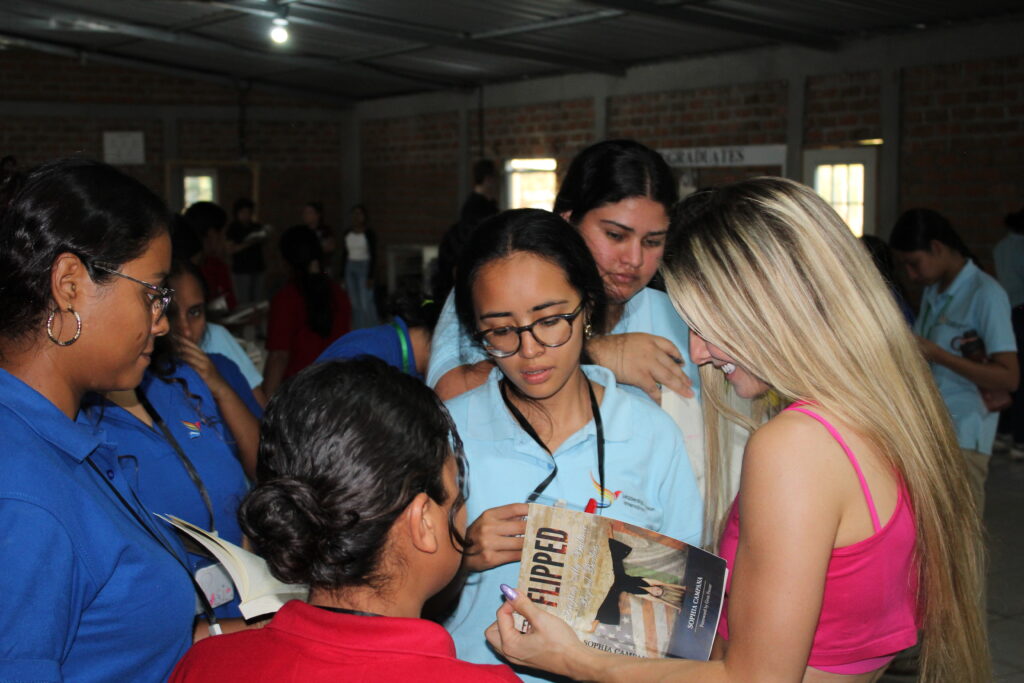
After her Powerful Mind seminar, Sophia Campana signed copies of her autobiography, Flipped: Keeping My Balance Beyond Borders.
The final piece of the puzzle is visualizing where you want to go next. Melanie’s “future story” exercise asks students to create vision boards that articulate their dreams—be it a new career, a family, or personal wellness. At the end of the week, many walk away with a clearer sense of self-worth, emboldened by the reminder that “success” can look different for everyone.
By interweaving storytelling, self-defense, and honest reflection, Melanie’s team showed LMI students that finding your voice is a powerful form of personal and communal change. Together, they give students the tools to stand up against fear and violence, helping them feel stronger in the face of harsh realities. As one student put it, “We learned it’s not just about defending ourselves physically; it’s about believing we’re worth defending in every way.”
